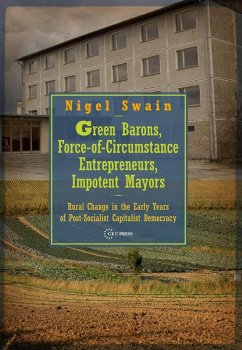An exemplary study in comparative contemporary history, this monograph looks at rural change in six countries: Bulgaria, Czech Republic, Hungary, Poland, Romania and Slovakia. In the 1990s most of these nations experienced a fourth radical restructuring of agricultural relations in the twentieth century, and all went through the dramatic transition from communism to capitalism. The author analyzes attempts to activate democracy on a local level and recreate farming structures and non-agricultural businesses based on private ownership and private enterprise. He describes the emergence of a new business class that seeks to dominate local government structures; the recuperation of former communist farming entities by former managers; and the transformation of peasants into rural citizens, who nevertheless remain the underdogs. Swain exposes common features as well as specific divergences between the six countries; he portrays the winners, losers and engineers of transformations. He situates his themes in a wider context that will appeal to a broad range of social scientists and historians.
Dieser Download kann aus rechtlichen Gründen nur mit Rechnungsadresse in A, B, BG, CY, CZ, D, DK, EW, E, FIN, F, GR, HR, H, IRL, I, LT, L, LR, M, NL, PL, P, R, S, SLO, SK ausgeliefert werden.









